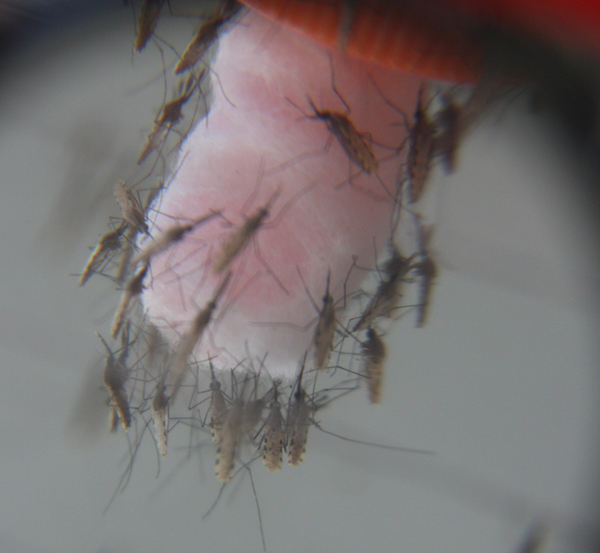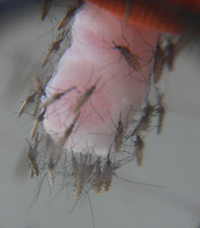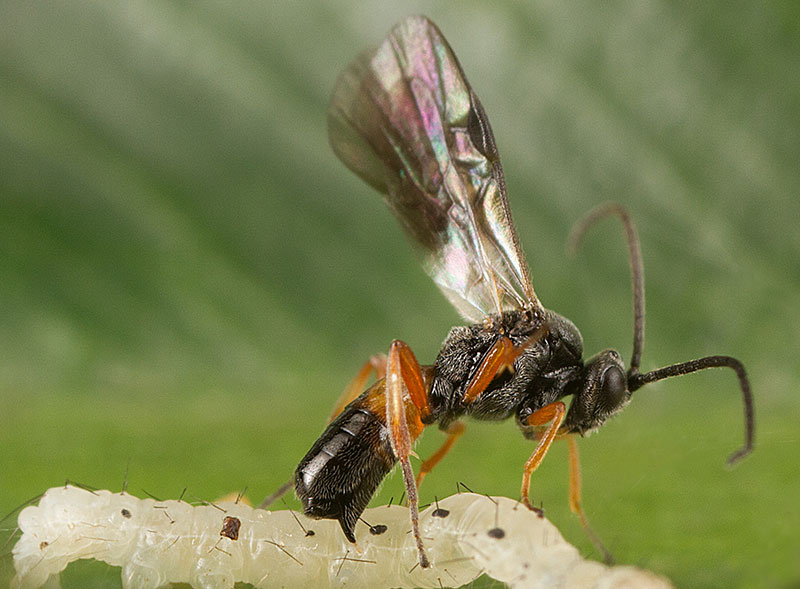Although the rate of mosquito-borne diseases has been low this summer, University of Georgia experts urge the public to continue to take caution during this last month of mosquito season.
"We don’t want people to let down their guard as football season arrives and evening activities increase,” said Elmer Gray, a UGA Extension mosquito specialist. “The peak period for West Nile transmission in Georgia has historically been August 15 through September 15.”
Gray highly recommends using EPA-approved repellents if people are expecting to encounter mosquitoes in the next few weeks.
Georgia is home to 63 species of mosquitoes, most of which thrived this summer because of the exceptionally wet weather. To date, much of the state is 15 inches or more ahead of normal rainfall for this time of the year. As a result, there is more standing water than in recent memory. This standing water provides excellent larval habitat for mosquitoes, even as we move into the last few weeks of summer.
Local mosquito control managers are logging numerous public complaints about a variety of mosquitoes that have benefited from that abundant rainfall. However, public health officials have isolated both Eastern equine encephalitis and West Nile virus in mosquitoes that have been trapped and studied.
Eastern equine encephalitis, the most severe mosquito-borne disease of humans in the U.S., is caused by a virus transmitted by mosquitoes that typically develop in the swamps and woodlands below the fall line in Georgia. Health districts have reported an increased number of animal cases, indicating that the virus is actively being transmitted.
Thankfully, cases are rare in humans. There was one human case in 2012, and a total of 29 have been reported since 1964. Symptoms range from mild, flu-like illness to brain swelling, coma and possibly, death. Symptomatic cases have a fatality rate of 30 to 50 percent.
The Georgia Department of Public Health has only reported two human cases of West Nile virus in Georgia, as of August 22. With one heavy mosquito population month to go, the state may have gotten off somewhat lucky this year.
Despite the large number of total mosquitoes, a relatively small population of the mosquitoes that transmit the virus to humans — the Southern house mosquito — has drastically reduced the number of cases.
Southern house mosquitoes develop in stagnant storm drains and thrive during drier summers, when their breeding grounds aren’t routinely flushed by rainwater. In contrast — during last year’s relatively dry summer — Georgia experienced a record 117 cases of West Nile and six deaths.
While Southern house mosquitoes or West Nile virus may not be making headlines, there is still some chance of catching the flu-like virus this year, Gray said.
Prevention is key
"Preventing mosquito bites is crucial to avoiding any of the mosquito-borne diseases, Gray said. “Loose fitting, light colored clothing, coupled with the proper use of EPA labeled repellents, will go a long ways in this effort.”
He strongly recommends using products containing DEET, which the American Academy of Pediatrics approves for use on children as young as two months. Parents should apply the repellent to their hands and then apply the product to the child. It is important to get good coverage and then wash the treated skin upon returning indoors, Gary said.
Homeowners can reduce mosquito populations by eliminating as much standing water as possible. Standing water that cannot be eliminated should be treated with an EPA approved larvicide, if mosquito larvae are present.
Empty buckets, plant saucers, boats, tarps and anything else that is holding water. Keep gutters clear of leaves and debris to eliminate an often neglected breeding ground.
Also check rain barrels, which provided water for landscape needs in past year’s droughts, for larvae. It is vital that screens are intact around all openings or these barrels will become highly productive mosquito habitats.
In addition, screens on windows and doors should be checked for holes. Many mosquitoes are attracted to light and will be drawn to open windows after dark.
For more information on mosquitoes in Georgia, search the UGA Extension publications at www.caes.uga.edu/publications.









